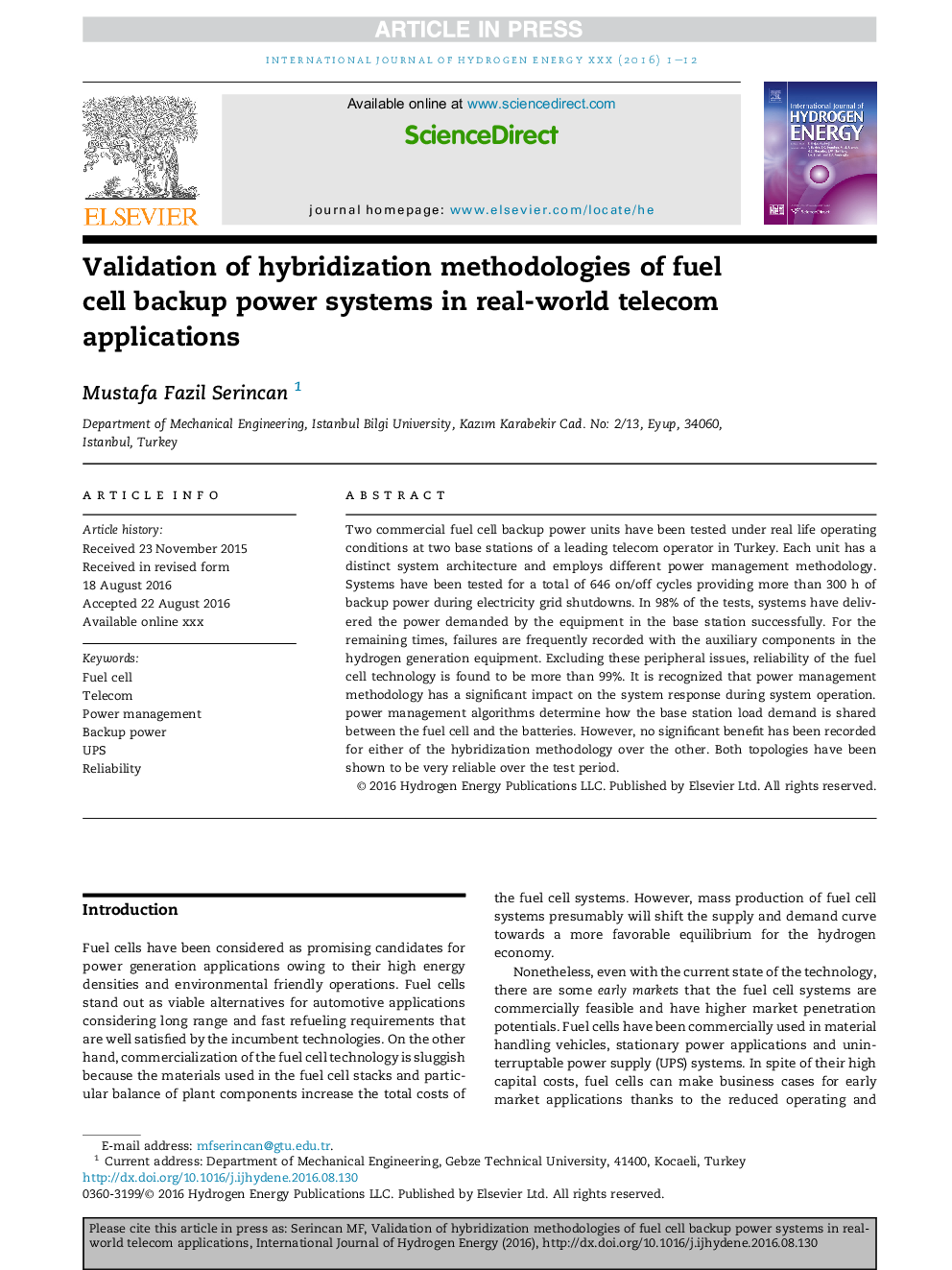| Article ID | Journal | Published Year | Pages | File Type |
|---|---|---|---|---|
| 5147163 | International Journal of Hydrogen Energy | 2016 | 12 Pages |
Abstract
Two commercial fuel cell backup power units have been tested under real life operating conditions at two base stations of a leading telecom operator in Turkey. Each unit has a distinct system architecture and employs different power management methodology. Systems have been tested for a total of 646 on/off cycles providing more than 300Â h of backup power during electricity grid shutdowns. In 98% of the tests, systems have delivered the power demanded by the equipment in the base station successfully. For the remaining times, failures are frequently recorded with the auxiliary components in the hydrogen generation equipment. Excluding these peripheral issues, reliability of the fuel cell technology is found to be more than 99%. It is recognized that power management methodology has a significant impact on the system response during system operation. power management algorithms determine how the base station load demand is shared between the fuel cell and the batteries. However, no significant benefit has been recorded for either of the hybridization methodology over the other. Both topologies have been shown to be very reliable over the test period.
Related Topics
Physical Sciences and Engineering
Chemistry
Electrochemistry
Authors
Mustafa Fazil Serincan,
